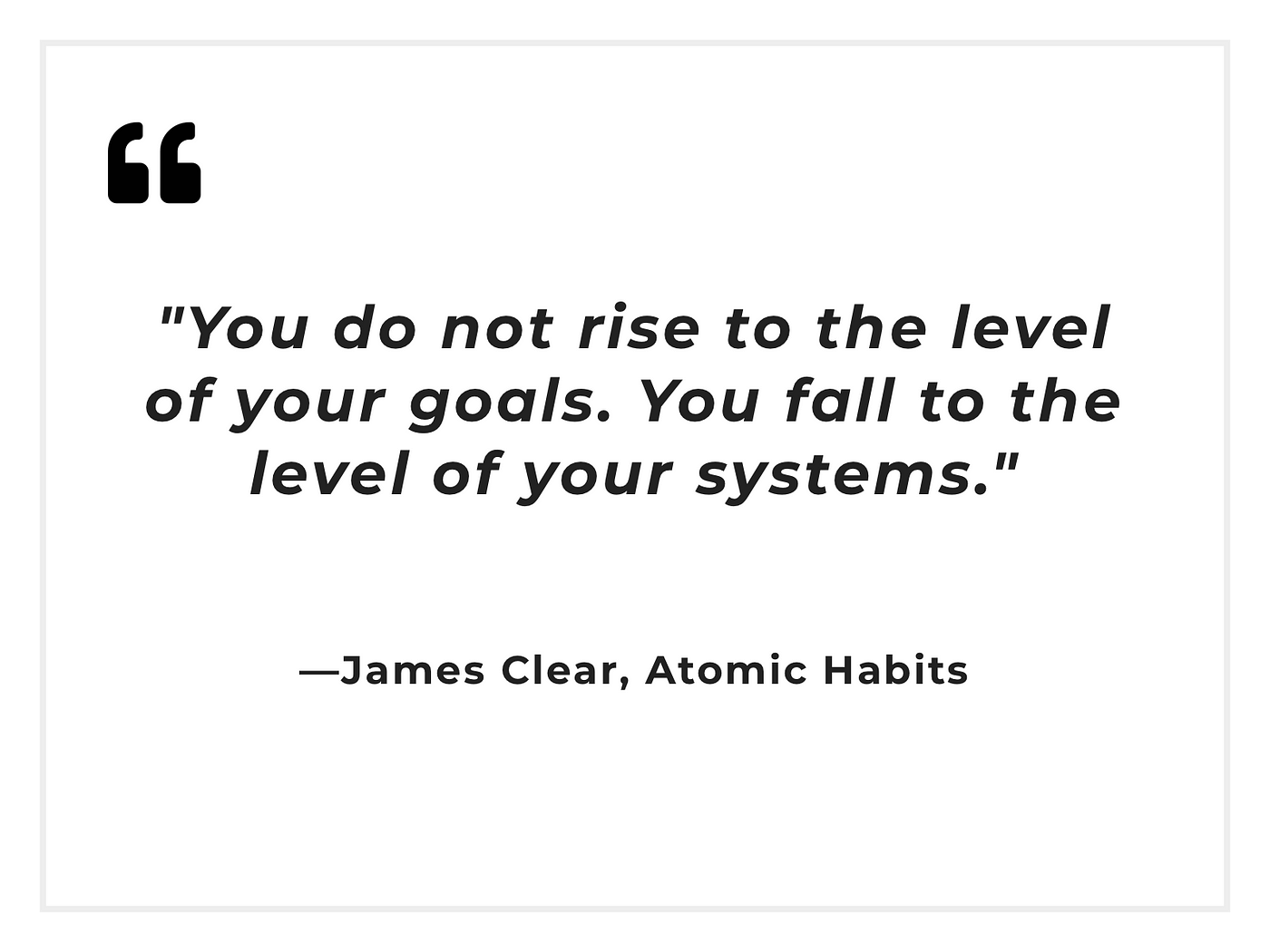When we think about achieving success, it’s natural to focus on setting goals. Goals are important because they give us direction and define success. However, goals alone don’t ensure progress. What truly drives long-term success is the system you build to achieve those goals. Systems are the daily habits, routines, and processes that guide your actions and keep you moving forward, even when motivation fluctuates.
James Clear, author of New York Times best-seller “Atomic Habits”, wrote
To better understand the relationship between goals and systems, watch this video of James Clear being interviewed by Peter Attia, a researcher and entrepreneur focused on long, healthy, meaningful lives:
This video highlights a powerful idea: while goals are essential for setting a destination, systems determine whether you’ll actually get there. For example, if your goal is to write a book, your system might include writing for 30 minutes every morning. By focusing on your system, you ensure consistent progress and reduce the overwhelm of chasing a big, distant objective.
SMART Goals Aligned with Systems
To integrate systems thinking into your goal-setting, you can use the SMART framework to focus not only on the outcome but also on the habits and skills that drive success. Let’s break it down:
- Specific: Instead of setting a vague goal like “be healthier,” focus on a specific system you’ll follow.
- Example: “I will meal prep every Sunday to ensure I eat balanced meals throughout the week.”
- Measurable: Make your system measurable to track your progress.
- Example: “I will work on my public speaking skills by practicing a 5-minute speech three times a week.”
- Achievable: Start with a system that feels manageable and realistic within your current schedule.
- Example: “I will write 300 words every day instead of aiming for a whole chapter.”
- Relevant: Ensure the habits and routines you build directly support your larger goals and aspirations.
- Example: “I want to improve my fitness, so I’ll follow a strength-training program 3 days a week.”
- Time-Bound: Set a timeframe for how long you’ll stick with the system before reassessing.
- Example: “I will commit to this daily journaling practice for the next 30 days.”
Mindset Shift: Habits and Skills Over Outcomes
Goals tell you where you want to go, but systems keep you moving. By focusing on daily habits and the skills you want to develop, you build a foundation for consistent progress. Even if you don’t immediately achieve your goal, the skills and habits you develop are valuable and transferable. For example:
- Goal: “Learn to play guitar.”
- SMART System: “Practice 20 minutes a day, focusing on one chord progression at a time.”
- Goal: “Run a marathon.”
- SMART System: “Follow a structured training plan with incremental mileage increases each week.”
By adopting this mindset, you shift from focusing solely on the outcome to embracing the process. This reduces stress, builds resilience, and helps you enjoy the journey, not just the destination. If your goal changes, you don’t feel like you wasted your time or energy.

